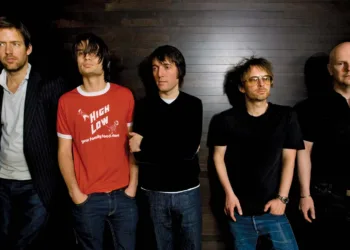The hallowed grounds of Chepauk have witnessed countless moments of MS Dhoni magic over the years – last-ball sixes, lightning-quick stumpings, and tactical masterstrokes that earned him the moniker ‘Thala’ among the passionate Chennai faithful. But on Saturday afternoon, as Chennai Super Kings faced Delhi Capitals, an unmistakable undercurrent of anxiety rippled through the stands, transforming the usual carnival atmosphere into something more somber and reflective.
The sight of Dhoni parents and extended family in the Madras Cricket Club enclosure sparked a wildfire of speculation that this might be the 43-year-old legend’s final dance in yellow. What began as whispered conversations quickly amplified into full-blown retirement discussions that dominated commentary boxes and social media timelines alike. As the iconic wicketkeeper-batsman struggled through a laborious 30 off 26 deliveries, the question hanging heavier than the Chennai humidity wasn’t whether Dhoni would retire, but whether he should – a once unthinkable notion now impossible to ignore.
Table of Contents
MS Dhoni Retirement Speculation: From Whispers to Roars
What started as routine pre-match anticipation at MA Chidambaram Stadium quickly transformed into something more poignant when eagle-eyed spectators noticed Dhoni’s parents settled into the Madras Cricket Club enclosure. In cricket’s theatrical tradition, family presence often foreshadows momentous career announcements, and the sight immediately triggered speculations about a potential retirement ceremony. The murmurs gained such momentum that even seasoned commentators Abhinav Mukund and Aakash Chopra addressed them directly during the mid-innings analysis on JioHotstar, cryptically suggesting: “We will have answers soon.”
The retirement narrative dominated conversations so thoroughly that it overshadowed the actual match proceedings, with social media abuzz with retrospectives of Dhoni’s illustrious career even as play continued on the field. The speculation reached such a fever pitch that CSK head coach Stephen Fleming was compelled to address it directly in the post-match press conference, offering a definitive if somewhat defensive response: “He is still going strong and I don’t even ask him these days.”

Fleming’s statement momentarily quieted the speculation, but for many observers, the evidence on the field told a different story. The once-explosive finisher, who revolutionized the art of late-innings acceleration, has become increasingly one-dimensional in his batting approach. Against Delhi Capitals, Dhoni entered at a critical juncture with Chennai needing 110 runs from 56 deliveries – precisely the kind of situation where his legendary finishing abilities once thrived. Instead, viewers witnessed a labored innings that never found the necessary momentum, reinforcing growing concerns that the CSK talisman’s remarkable powers have waned beyond recovery.
Performance Reality: The Diminishing Returns of a Legend
The uncomfortable truth that Chennai Super Kings and their loyal fanbase must confront is that Dhoni’s current performances no longer justify his place in a competitive T20 franchise. His innings against Delhi Capitals exposed the limitations that have become increasingly apparent in recent seasons. Entering at number seven with the required run rate hovering around 12 per over, the situation demanded vintage Dhoni power-hitting. Instead, what unfolded was a painful struggle against both spin and pace – two disciplines he once dominated with authoritative ease.

Particularly telling was Dhoni’s discomfort against spinners during the middle overs, a phase where he previously excelled at manipulating fields and maintaining strike rotation. Four of nine overs after his arrival were bowled by spinners, and Dhoni’s inability to dominate this match-up highlighted how dramatically his batting arsenal has narrowed. Even against seam bowling, his once-feared hitting zone has contracted significantly. A revealing moment came in the 14th over when Mohit Sharma, after bowling a no-ball, confidently delivered a 133.9 km/h bouncer that left Dhoni late on the hook shot – a delivery he would have dispatched with ease during his prime.
The statistical decline tells its own story. The six and four he managed came exclusively against Mukesh Kumar, a medium-pacer who delivered balls in Dhoni’s increasingly narrow hitting range. Against quality spin and crafty pacers who vary their speeds, Dhoni’s effectiveness has diminished dramatically. As analyst Aakash Chopra noted during commentary, “Bowlers now have a much bigger workspace with Dhoni’s hitting arc beginning to minimize.”
| Aspect of Dhoni’s Game | Prime Years (2008-2019) | Current Form (IPL 2025) |
|---|---|---|
| Average Strike Rate | 140+ | Below 120 |
| Effectiveness vs Spin | Dominant | Significantly Diminished |
| Pace Handling | Exceptional vs All Speeds | Struggles Against Pace Variations |
| Batting Position | Flexible (4-7) | Primarily 7 or Lower |
| Match-Winning Knocks | Frequent | Increasingly Rare |
| Physical Mobility | Elite | Visibly Reduced |
The Chepauk Faithful: From Whistles to Whispers
Perhaps the most telling indicator of Dhoni’s decline isn’t found in statistics or expert analysis but in the changing mood at Chepauk itself. The stadium that once erupted into deafening “Dhoni! Dhoni!” chants now occasionally displays a distinctive disquiet during his labored batting efforts. On Saturday, as his innings progressed without the necessary acceleration, pockets of empty seats began appearing – a previously unthinkable sight during a Dhoni batting display.

This isn’t to suggest that Chennai has abandoned their hero; far from it. The overwhelming majority still shower him with adulation, and entrance music remains piercingly loud. But the atmosphere has subtly shifted from expectant excitement to hopeful nostalgia. Fans no longer anticipate Dhoni will win games single-handedly but rather hope for glimpses of past brilliance – a six over midwicket, a deft flick through fine leg, anything to momentarily transport them back to more glorious times.
For CSK management, this presents a delicate dilemma. Dhoni remains the franchise’s heartbeat and brand ambassador despite relinquishing captaincy. His commercial value transcends on-field contributions, yet the team’s competitive needs cannot be indefinitely subordinated to sentiment. With 17 players already utilized in just four matches this season, CSK appears to be searching for combinations that work – a difficult task when accommodating a specialist batsman whose specialty has faded.
SRH vs GT Dream11 Prediction IPL 2025: Best Fantasy Picks and Playing XI for Match 19
Frequently Asked Questions
Why doesn’t MS Dhoni announce his retirement plan before the IPL season begins?
MS Dhoni’s approach to retirement has always been characterized by his distinctive preference for privacy and timing. Throughout his career, Dhoni has made significant career decisions without public build-up, most notably his sudden Test retirement announcement in Australia and his unexpected stepping down from India captaincy. This pattern reflects his philosophy of putting team interests above personal milestones and avoiding distracting farewell tours.
For the IPL specifically, announcing retirement plans before a season would create several complications: it would generate a circus-like atmosphere at every venue that might overshadow team objectives, potentially affect CSK’s strategic planning and player auction strategies, and eliminate flexibility if his form or physical condition changed unexpectedly. Furthermore, Dhoni likely values maintaining control over his narrative—preferring to make career decisions based on personal readiness rather than external timelines. Finally, his deep emotional connection with Chennai Super Kings means any retirement decision involves not just personal considerations but responsibilities to franchise, teammates, and fans, making it a complex decision he likely prefers to navigate privately until absolutely necessary to announce.
How has MS Dhoni’s role in CSK changed since he stepped down from captaincy?
Since relinquishing the CSK captaincy, MS Dhoni’s role has undergone a significant transformation that extends beyond just leadership duties. His on-field responsibilities have narrowed considerably, with Dhoni now primarily functioning as a specialized lower-order finisher rather than a versatile middle-order anchor. This role specialization is evident in his batting positions, typically coming in at number 7 or 8, often with fewer than 5 overs remaining. While his tactical influence remains substantial, with cameras frequently capturing him discussing field placements and bowling changes with current captain Ruturaj Gaikwad, his formal decision-making authority has diminished.
Behind the scenes, Dhoni continues to serve as a mentor figure particularly valuable to younger Indian players and wicketkeepers, providing technical guidance and psychological support. His commercial importance to the franchise remains undiminished—Dhoni continues to be the face of CSK’s marketing campaigns, merchandise sales, and fan engagement initiatives despite his reduced playing role. This creates a unique situation where his value to the team transcends traditional performance metrics, allowing him extended opportunity to contribute in limited playing capacity while the franchise gradually transitions to its next era of leadership.







